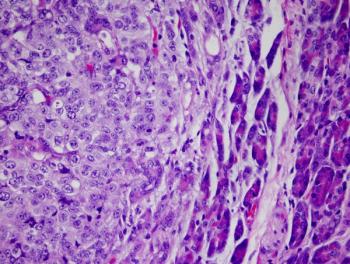
mRNA-4157 is being evaluated in combination with pembrolizumab as part of the phase 2b KEYNOTE-942/mRNA-4157-P201 trial in patients with completely resected, high-risk, stage III to IV melanoma.

Your AI-Trained Oncology Knowledge Connection!


mRNA-4157 is being evaluated in combination with pembrolizumab as part of the phase 2b KEYNOTE-942/mRNA-4157-P201 trial in patients with completely resected, high-risk, stage III to IV melanoma.

Danazol was reviewed as an effective treatment option for patients with myelodyspplastic syndromes, according to a recently published article by Sangam Shah, MBBS, et al.

Early screening for breast cancer may help match patients with appropriate systemic therapies depending on the extent of their tumors, according to Rakhshanda Rahman, MD, FRCS, FACS.
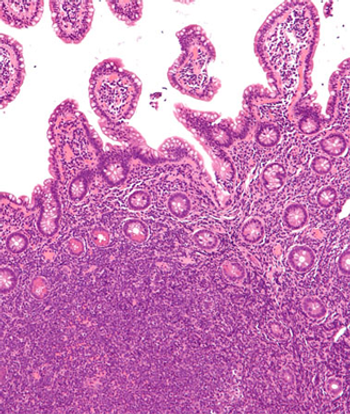
A regimen consisting of venetoclax, ibrutinib, prednisone, obinutuzumab, and lenalidomide appears safe for a population of patients diagnosed with mantle cell lymphoma, as investigators report no significant dose-limiting toxicities or tumor lysis syndrome.

The current drug supply shortage is due to manufacturing issues and economic factors, both of which can be addressed, according to Jason Westin, MD, MS, FACP.

Data from a real-world study may help clinicians in treatment decision-making for those with extensive-stage small cell lung cancer who are unable to afford PD-L1 inhibitors.

Adding camrelizumab to chemotherapy appears tolerable for patients with resectable stage IIIA or IIIB non–small cell lung cancer in the phase 2 TD-FOREKNOW trial.

Treatment with lisocabtagene maraleucel in the TRANSCEND CLL 004 study raises no new safety concerns in patients with relapsed/refractory chronic lymphocytic leukemia, says Tatyana Feldman, MD.

Patients with locally advanced or metastatic urothelial cancer may now receive enfortumab vedotin plus pembrolizumab following its approval by the FDA.

Suneel K. Kamath, MD, et al investigated exceptional responders and the correlation of nonsynonymous mutations for patients with advanced pancreatic cancer.

The phase 2 LuminICE study shows potential for the AFM13/AB-101 combination in treating patients with relapsed or refractory CD30-positive lymphoma.

Isatuximab plus carfilzomib, lenalidomide, and dexamethasone demonstrates durable responses in patients with newly diagnosed standard- and high-risk multiple myeloma.

Asciminib results in greater efficacy, safety, and tolerability compared with bosutinib in patients with chronic myeloid leukemia, according to findings from the phase 3 ASCEMBL study.

Results from the phase 3 LITESPARK-005 trial led to the approval of belzutifan for patients with advanced renal cell carcinoma, according to the FDA.

Ibrutinib plus venetoclax appears to be effective across the overall chronic lymphocytic leukemia population in the CAPTIVATE study, although progression-free survival is shorter for those with TP53 mutations.
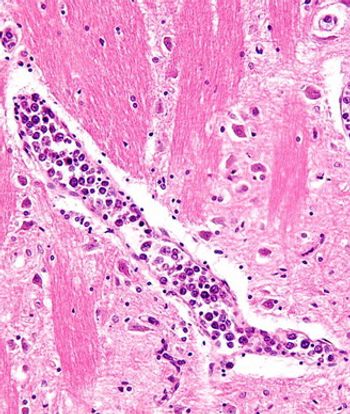
Treatment with pirtobrutinib may be a standard of care in patients with relapsed/refractory mantle cell lymphoma previously treated with a covalent BTK inhibitor, says Jonathon B. Cohen, MD, MS.

The FDA sets a Prescription Drug User Fee Act date of June 12, 2024, for tarlatamab as a therapy for patients with advanced small cell lung cancer.

The Lurie Cancer Center Hispanic Breast Cancer Clinic taps into the efforts of Spanish-speaking physicians, social workers, and others to help treat Hispanic patients with breast cancer, says Claudia Tellez, MD.

Data from a phase 1 study support further analysis of BGB-16673 across several B-cell malignancies, according to the study investigators.

Eflornithine, which was approved in adult and pediatric patients with high-risk neuroblastoma, was assessed in an externally controlled trial comparing results from Study 3b and Study ANBL0032.

Data from the phase 1/2 MonumenTAL-1 studies support flexibility to adjusting the dose of talquetamab in patients with relapsed/refractory multiple myeloma who already have a response.
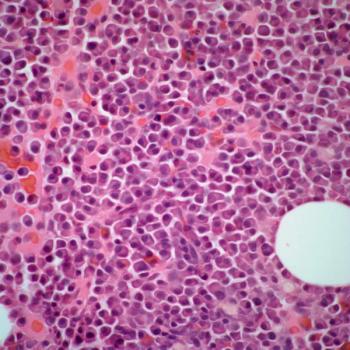
Because patients with myeloma are at a high risk for financial hardship, study findings support the use of a financial navigation program to reduce financial toxicities of patients.

Revumenib treatment results in durable MRD-negative remissions in pediatric and adult patients with relapsed/refractory KMT2A rearranged acute leukemia in the phase 2 Augment-101 study.
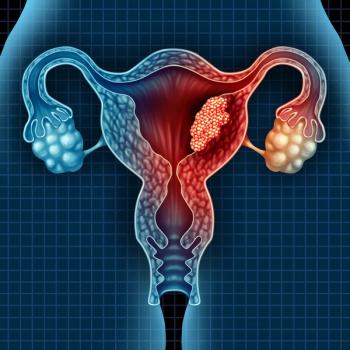
The European approval for dostarlimab and chemotherapy for dMMR/MSI-H, primary advanced or recurrent endometrial cancer is based on data from part 1 of the phase 3 RUBY/ENGOT-EN6/GOG3031/NSGO trial.

It is important to look at different assays beyond immunohistochemistry to better gather information and potentially predict the activity of trastuzumab deruxtecan in patients with HER2-positive metastatic breast cancer, says Paolo Tarantino, MD.

Treatment with NX-2127 leads to clinically meaningful activity in heavily pretreated chronic lymphocytic leukemia, according to results from the phase 1 NX-2127-001 trial.

Treatment with anito-cel produces deep, enduring responses in high-risk relapsed/refractory multiple myeloma, says Matthew Frigault, MD.
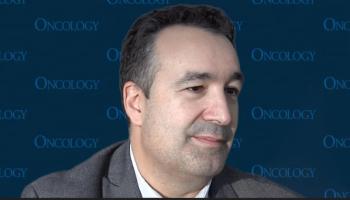
The safety profile of idecabtagene vicleucel in relapsed/refractory multiple myeloma following the first 3 months of treatment appears to be comparable with standard therapies, says Rachid Baz, MD.

Investigators of a phase 1 trial identify no safety signals with Orca-Q in the haploidentical stem cell transplantation setting.

Updated safety and subgroup analyses appear consistent with previously reported results from the phase 2 ZUMA-12 study of axicabtagene ciloleucel for patients with high-risk large B-cell lymphoma.